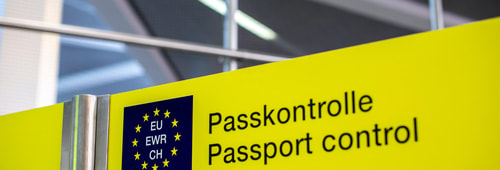The Government is currently consulting on its New Plan for Immigration, which includes a wide range of proposals for different aspects of immigration.
The majority of the plan includes reforms for the refugee and asylum system, aiming to simplify claims and appeals, enable greater punishment for criminals and remove legal anomalies. There has been significant backlash against the plan, and the Evangelical Alliance shares concerns that it would create a two-tier immigration and asylum system that fails to treat people with sufficient dignity. The asylum system and immigration laws are complex as there are a variety of factors to consider; below are a selection of key aspects of the proposed new plan to consider.
Claims based on legality of arrival
One of the most controversial new proposals is the ability to base asylum claims on how a person arrived in the UK. This proposal implies there are ‘good’ and ‘bad’ refugees and people seeking asylum. Mode of arrival has a significant impact on whether a claim is successful or not. In cases where claims are approved, a person who travelled by an irregular route receives temporary protection status rather than gaining the full rights of a refugee. Temporary protection status means a person will be assessed every 30 months for removal, have limited family reunion rights and will have no access to public funds except in cases of destitution. There are also proposals that people can be removed whilst their claim is being processed. This has the potential to remove stability from people who have faced massive upheaval in their lives due to conflict.
A safe third country
Similar penalties are being proposed around whether someone seeking asylum has travelled through another ‘safe country’. The plan makes many assumptions about people seeking asylum, assuming they are ‘picking the UK as a preferred destination over others’, when it is unlikely that they had a choice. People seeking asylum are also not obligated to apply for asylum in the first country they reach according to international law. There are proposals to make them ‘inadmissible’ to the UK asylum system.
Dublin Regulation
The Dublin Regulation determines which country is responsible for an asylum application in the EU, which is normally the first country the person arrived in. The nature of migration routes meant that certain European countries had more people seeking asylum than others. Therefore, the UK could alleviate the burden of other European countries. It also meant that there was cooperation to reunite families across the EU. Since Brexit, the UK is no longer obligated to the Dublin Regulation; however, collaboration with the EU would continue to be beneficial.
Resettlement schemes
Resettlement schemes allow for vulnerable refugees to be integrated into UK society. It is one of the main safe and legal routes to the UK and there are many success stories with resettlement schemes. The Government often sets targets for how many people they are committed to resettling into the UK. Unfortunately, there are no named targets in this plan. However, we are encouraged to see the Government acknowledge more groups of vulnerable people, such as persecuted Christians. As one of the few safe and legal routes, there should be a greater emphasis on improving and expanding these schemes. We welcome the Government’s desire to expand community sponsorship schemes and encourage churches to get involved.
Reforming the asylum system
An effective asylum system is one of the best ways to allow people into the UK. It has the potential to allow a larger number of vulnerable people into the UK compared to resettlement schemes. While we acknowledge the system is not unlimited, there are improvements that can be made that would benefit people seeking asylum and the Government. The backlog of cases would be better served by appropriate legal training and support for caseworkers rather than penalising people by their mode of arrival. The Government is proposing a higher standard for testing persecution or a well-founded fear, which would only serve as another hurdle for people seeking asylum.
Supporting victims of modern slavery
There are various proposals to further support victims of modern slavery and human trafficking. This includes lowering the threshold of proof, providing tailored mental health support more certainty around immigration status. It is good to see more provisions for people who are particularly vulnerable. However, these provisions should not be used to further the false dichotomy of ‘good’ and ‘bad’ refugees/people seeking asylum.
Navigating the consultation
The Government has launched a consultation into their new proposals that are a mixture of multiple choice and free text answers. The consultation is hosted on an external website to which you have to register in order to participate; it is not an easy consultation process to navigate. The questions are also geared towards supporting what the Government has proposed and provide limited scope for wider comment. There is no need to respond to all questions, so if you wish to you can focus on a couple to make your key points.
If you would like to comment on the proposals which would create a two-tier asylum and immigration system based on route of entry you can respond to question 21. Questions 25 and 30 offer an opportunity to comment more broadly on reforming the asylum system and asylum claims and appeals, respectively.

